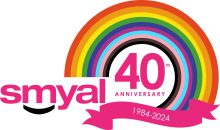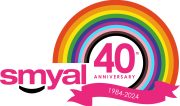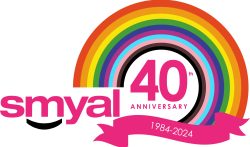Q: Tell us about your time at smyal:
A: I never really felt like I fit in particularly well at SMYAL, but it was a more-or-less difficult time in the lives of all the youth who attended, and I have always been on the more socially-awkward end of the spectrum. My favorite and most distinct memories of the Pennsylvania Avenue location are the walls being lined with books; other than at the Arlington public library, this was my first opportunity to interact with gay literature and culture, and I took advantage, borrowing books every week to devour at home. This had a direct effect on my life, as I have gone on to research heavily in gay and lesbian history and literature. My first book, the anthology “Persistent Voices: Poetry by Writers Lost to AIDS” (Alyson, 2010) featured a number of poets whose work I first encountered on the shelves at SMYAL. I also have some more recent “favorite SMYAL memories,” as I came back a couple of times to give talks and walking tours to SMYAL youth who were connected to the organization’s youth leadership initiative. Those kinds of interactions give you hope for the future of our community.
Q: Where are you now?
A: After college at William & Mary, I returned to the DC area and still live locally, in Falls Church. I was a high school English teacher for four years, and am now in my 7th year as a high school librarian. In my “second career,” I’m a researcher and writer/editor, mostly about GLBT topics; I’ve published one book, and a second is scheduled for publication, along with publishing a lot of essays and articles over the years. I also work locally with the Rainbow History Project, chronicling the history of GLBT Washington DC
Q: What advice would you give current smyal youth?
A: Read everything you can get your hands on about your people’s history and culture. Trends and fashions come and go, but that kind of knowledge never ages and can never be taken away.



